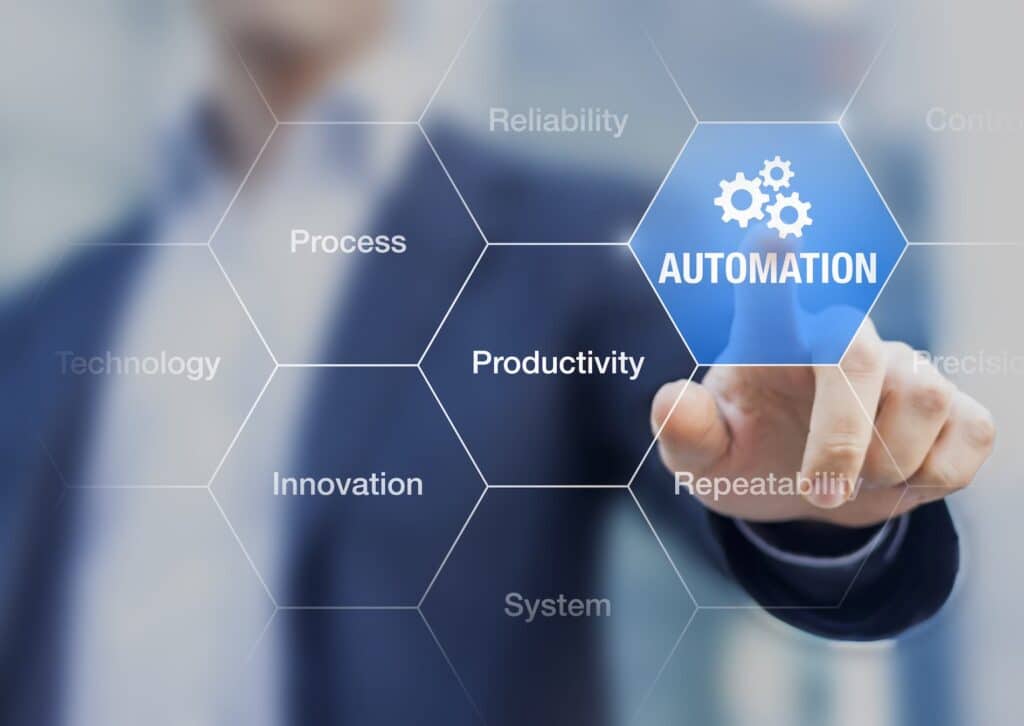Why Robotic Process Automation (RPA) and GenAI revolutionise SME operations

In the past year alone, industry has seen rapid and revolutionary transformations due to advancements in automation. Organisations have been able to reduce the time spent on repetitive tasks such data manipulation, migration, entry and analysis, and also those spent remediating human error, saving their resources for more critical tasks. Simply getting up to speed with automation can offer huge benefits to business functions like HR, finance, travel and marketing – all supporting business efficiency and ultimately, profitability.
In previous years, the rise of Robotic Process Automation (RPA) has removed the burden that legacy technologies, cumbersome manual processes and repetitive tasks had on day-to-day business operations. By offering companies of any size the potential for low-cost, accessible ways to understand data, they can benefit from faster, more informed decision-making. With the current explosion in Generative AI solutions, we are sure to see operations bolstered once more. But how can SMEs be convinced to make another radical change to their operations without fear?
Here are 4 reasons why RPA and GenAI aren’t a threat to operations, but rather have the power to completely transform SMEs for the better:
Low-cost investments for rapid results
Previously, automation solutions have often required both software and hardware, as well as an investment in training current staff members. In some cases, such as when employees are not able or willing to learn, SMEs have also had to invest in recruiting new staff with the necessary digital skills to work with the new technologies.
RPA is now available as a SaaS (software-as-a-service) offering, meaning businesses of any size can access it through a simple cloud deployment. RPA SaaS is also an affordable option, particularly for smaller companies, avoiding the cost implications of investing in expensive infrastructure or re-architecting applications.
Businesses also have the opportunity to remove the weight that legacy technologies, burdensome manual processes and repetitive tasks place on their everyday operations. By automating repetitive tasks with improved accuracy and efficiency, businesses are able to invest more time in retraining and reskilling workers in different, more productive areas.
AI-supported humans will become the new workforce
Whenever a new, disruptive technology emerges, there is always an underlying concern that humans with be replaced. However, SMEs shouldn’t be scared: as RPA only replaces those roles that can’t be fulfilled by humans, the same is true of Generative AI tools; either because humans cannot be found to perform the roles, or the level of quality needed cannot be consistently delivered by the human hand.
If anything, adopting AI tools will allow staff to spend more time being innovative and getting in touch with their creative side, which opens the opportunity for increased personal development and the chance to be re-deployed to higher-level, managerial roles. Rather than replace the roles, the tools simply offer different avenues and the creation of new technical roles, where skilled workers are now needed to monitor and analyse the results.
Tools like ChatGPT are simply that – tools. They shouldn’t be demonised, as they simply enable another interface into the digital world, aiding workers in finding answers. As it matures, it will only become riper for creativity, and therefore business opportunity.
AI and automation tools are accessible across sectors
Whilst the early adopters of RPA were larger enterprises in the finance and banking sectors, automation tools have had huge success in revolutionising sectors such as healthcare, manufacturing and logistics. RPA can be used to automate most repetitive tasks in many different organisations across an array of industries – for greater accuracy and efficiency.
These necessary tasks crosscut every industry, which highlights how RPA can be of great assistance in improving how businesses run, regardless of the sector.
As AI becomes more reliable as an operational enhancement mechanism, Generative AI tools will only become more accessible. Whilst some have concerns about ChatGPT and similar tools marking the end of creativity, a more realistic and grounded approach will be how generative AI will enhance information gathering and collection – medial tasks applicable across all sectors. As it matures, the level of content will improve and become more efficient for specific sector and industry needs.
Embracing new avenues for operational improvement
Whilst the current focus of RPA and GenAI providers is firmly placed on bigger enterprises, particularly banks and financial services firms, engagement with SMEs could be more impactful due to their smaller size and therefore greater business agility. Yet many SMEs are not currently geared towards optimising the technology they have, let alone the adoption of automation and AI-related systems, which means they may not immediately appreciate the value it can bring to their business. Add to this the fact that many RPA providers focus most of their time and resources on the “big boys”, how can SMEs be aware of the impact that automation technologies could have on day-to-day operations and their bottom line?
Business leaders in SMEs, particularly those with purchasing power, must take the lead and push for new technologies to be introduced into their company workflows. They should look to engage with the right partners and cloud providers who have knowledge of the most cost-effective and accessible solutions, now be provided as SaaS.
For businesses, finding a trusted external technology partner which can fill a company’s skills and expertise gaps is essential at a time of economic downturn. Managed Service Providers (MSPs) need to act as business partners, helping assess your risk exposure, develop security policies, choose and deploy security solutions, ensure compliance with regulatory mandates for data protection and develop skills with your teams.
As in any period of economic uncertainty, businesses need to control and contain cost. MSPs in turn need to adapt and evolve with technology in order to offer clients in turn the most comprehensive solutions possible, and bring real value-add. If SMEs partner with the right MSP they can get started in a very low-cost, low risk manner, and reap the full rewards of RPA and GenAI.
To read more about our Modern Workplace solutions, please click here.
You may be interested in
Your guide to leveraging NCE pricing to get the best value
Renewing your Microsoft Licensing Agreement is an opportunity to align your IT strategy with your business goals. It allows you to take advantage of the latest technologies, optimise costs, and ensure compliance with industry standards. While this might seem straightforward at first glance, to achieve the best value and biggest discounts, it’s often more complex than it appears and navigating the renewalprocess requires careful planning. In this Blog we will walk through what you need to know about the new Microsoft Licensing rules,when to get the best value from your renewal, and how to review…
Loving your customers with AI, cybersecurity and peace of mind with MSP support
2024 has marked a massive shift for SME IT needs, as creating an appropriate and optimised business strategy has become an increasingly difficult challenge for business owners and IT operators nationwide.
Protect your student data from continued ransomware attacks, says Espria
With ransomware rates still high for education organisations, better security oversight and orchestration is needed across UK schools.
Fortify and Reassure with Compliance and Cybersecurity Synergy
With new cyber threats emerging, businesses will need to develop a seamless and blended approach to cyber and compliance for strategic success.
UK businesses cannot continue risking reputation with shoddy security, says Espria
Sophos’ 2024 Threat Report recently highlighted ransomware as the biggest existential cyber threat to small businesses. While cyberattacks on large companies and government agencies may receive more news coverage, Sophos reported that SMB’s are generally more vulnerable to cybercriminals and suffer more proportionally from the results of a breach.
Peace of mind: Cloud is key in scaling systems to your business needs
Meeting the demands of the modern-day SMB is one of the challenges facing many business leaders and IT operators today. Traditional, office-based infrastructure was fine up until the point where greater capacity was needed than those servers could deliver, vendor support became an issue, or the needs of a hybrid workforce weren’t being met. In the highly competitive SMB space, maintaining and investing in a robust and efficient IT infrastructure can be one of the ways to stay ahead of competitors.





